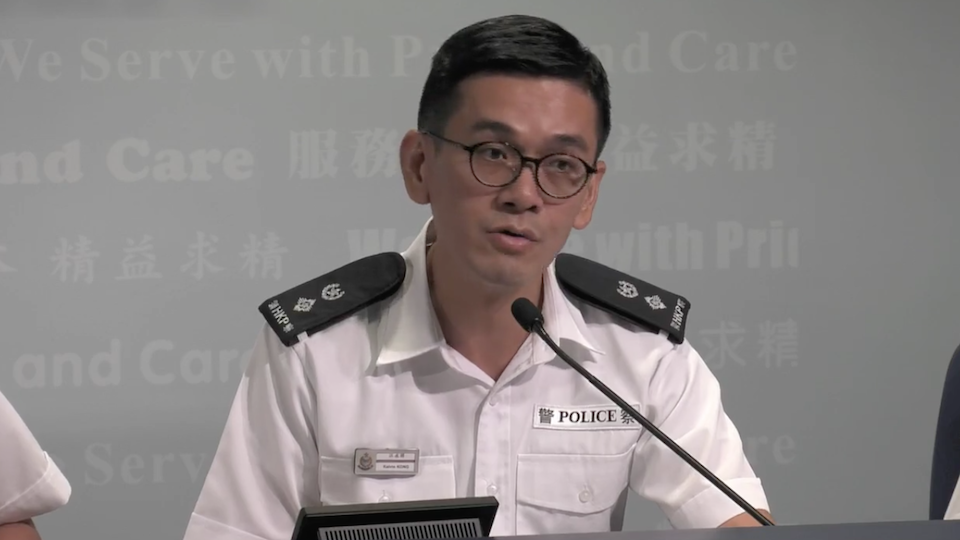Hong Kong police on Monday denied accusations their officers showed comparative lenience towards gangs of pro-Beijing men who attacked pro-democracy supporters during a weekend marked by multiple bloody street brawls.
The once stable international hub has been convulsed by weeks of huge, sometimes violent rallies calling for greater democratic freedoms and police accountability.
The movement is the biggest challenge to China’s rule since the city was handed back by Britain in 1997 and shows no sign of ending, with city leaders and Beijing taking a hard line.
On Sunday riot police fired tear gas and water cannon at hardcore pro-democracy protesters who were hurling rocks and petrol bombs, capping a 15th consecutive weekend of huge peaceful rallies followed by clashes.
But there was also an uptick in bloody street fights, with people on both sides of the political divide finding themselves beaten.
At a press conference on Monday, Hong Kong’s police displayed videos of multiple instances where individuals were attacked by pro-democracy supporters, including one where a man was kicked unconscious by a mob.
Pro-democracy activists were seen beating people in at least four separate locations throughout Sunday, with the unconscious man taken to hospital in a critical condition.
“The violence has again spiraled out of control and the situation is worrying,” police spokesman Superintendent John Tse told reporters.
“Many protesters took justice into their own hands and harshly assaulted people who were not on their side. We express the strongest condemnation against such reckless and ruthless violence,” he added.
– Differential treatment? –
But the police presentation spent little time documenting or condemning attacks by government supporters which occurred on both Saturday and Sunday in the districts of Fortress Hill and North Point, the latter a bastion of pro-Beijing sentiment where gangs have previously attacked their ideological opponents.
Social media lit up on Sunday evening as videos were posted of officers seemingly helping government supporters protect their identities or leave the scene.
One video showed two men being escorted by riot police repeatedly punch and kick reporters, with police seemingly not intervening, footage that sparked criticism from local press groups.
Many contrasted the footage with harsher treatment meted out to pro-democracy protesters when arrested.
But the force denied it had exhibited any double standards.
“In terms of differential treatment, I must refute (that),” Tse told reporters, adding police had arrested 29 people in North Point on Sunday night from both political camps.
He added the men who attacked journalists were later arrested.
Throughout the last three months the police force has found itself become increasingly reviled among pro-democracy protesters, accused of deploying disproportionate force and failing to protect people from pro-government assailants.
Viral videos of hard arrests, reports of injuries in custody and an attack by suspected triad gangsters on July 21 have only hardened sentiment, with officers routinely finding themselves harangued when they enter many neighborhoods.
Police have refuted allegations of bias and say they have used proportionate force against weeks of violent protests in which a minority of hardcore activists are escalating their tactics as each week passes.
At his briefing, Tse said protesters threw as many as 80 Molotov cocktails.
On Monday the Junior Police Officers Association, which represents frontline officers, issued a statement saying police should use live rounds against petrol bomb throwers if they feel their life is in danger.
Supporters of the local police and government, many waving Chinese flags, have organized rallies although they have been smaller than the huge pro-democracy marches.
The protests were sparked by opposition to a now scrapped plan that would have allowed extraditions to the Chinese mainland.
But after Beijing and local leaders doubled down the movement snowballed and made further demands, including an inquiry into the police, an amnesty for the more than 1,400 arrested and universal suffrage.




